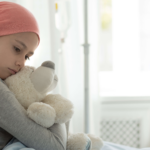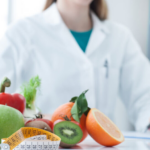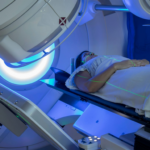
Breast cancer is one of the most prevalent cancers affecting women worldwide, with increasing attention on prevention through lifestyle choices. While genetics and environmental factors play significant roles, adopting a healthy diet has shown promising potential in reducing the risk of breast cancer. Here, we delve into the specific dietary components and habits that can contribute to breast cancer prevention.
Understanding Breast Cancer
Before delving into preventive measures, it’s essential to grasp the basics of breast cancer. Breast cancer develops when abnormal cells in the breast tissue grow uncontrollably, forming a tumor that can spread to other parts of the body if not detected and treated early. Various factors influence the likelihood of developing breast cancer, including age, family history, hormonal imbalances, and lifestyle choices.
The Impact of Diet on Breast Cancer Risk
Research indicates that approximately 30-40% of all cancers, including breast cancer, can be prevented by making healthier lifestyle choices, with diet being a crucial factor. While no single food or nutrient can prevent breast cancer, certain dietary patterns and choices can significantly lower the risk.
Key Dietary Factors in Breast Cancer Prevention
- Plant-Based Foods: A diet rich in fruits, vegetables, whole grains, and legumes provides essential nutrients, antioxidants, and fiber that support overall health and may reduce breast cancer risk.
- Healthy Fats: Consuming healthy fats like those found in olive oil, nuts, and fatty fish can contribute to a balanced diet and potentially reduce inflammation, which is linked to cancer development.
- Limiting Red and Processed Meats: High intake of red and processed meats has been associated with an increased risk of breast cancer. Choosing leaner protein sources such as poultry, fish, or plant-based proteins can be beneficial.
- Moderate Alcohol Consumption: Alcohol consumption has been consistently linked to an increased risk of breast cancer. Limiting alcohol intake or avoiding it altogether is advisable for those concerned about breast cancer prevention.
- Maintaining a Healthy Weight: Obesity and being overweight have been linked to an increased risk of breast cancer, particularly after menopause. Adopting a diet rich in fruits, vegetables, and whole grains while controlling portion sizes can help maintain a healthy weight.
Specific Nutrients and Substances
Certain nutrients and substances found in foods have been studied for their potential role in breast cancer prevention:
- Antioxidants: Found in fruits and vegetables, antioxidants such as vitamins C and E, beta-carotene, and selenium help protect cells from damage that can lead to cancer.
- Phytochemicals: These naturally occurring compounds in plant foods have antioxidant and anti-inflammatory properties that may help prevent cancer.
- Fiber: Found in whole grains, fruits, and vegetables, fiber supports digestive health and may help reduce breast cancer risk by regulating hormone levels.
Lifestyle Factors Beyond Diet
While diet plays a significant role, other lifestyle factors also contribute to breast cancer prevention:
- Physical Activity: Regular exercise not only helps maintain a healthy weight but also reduces the risk of breast cancer by regulating hormone levels and boosting the immune system.
- Smoking Cessation: Quitting smoking and avoiding exposure to secondhand smoke are crucial steps in reducing cancer risk.
- Regular Screening: Early detection through regular mammograms and self-examinations remains vital in the fight against breast cancer, even for those adopting a healthy lifestyle.
Summary
For those seeking to lower their risk of breast cancer, a healthy diet is crucial. Including plant-based foods, healthy fats, and limiting red meats and alcohol can boost overall health and potentially reduce the risk of breast cancer. For expert guidance and personalized advice on cancer prevention, consult with Dr. Jagdish Shinde, renowned as the Best Clinical Oncologist in Pune, at Cancer Care Pune in Pimple Saudagar, Pune.




